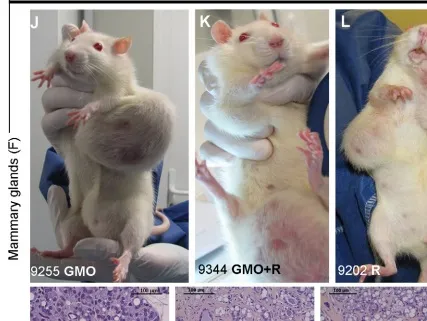GMOs Part 2: Why we dislike them
- Islon Woolf MD

- May 12, 2025
- 3 min read
Updated: May 19, 2025
In Part 1, I showed you that the lay public has very little knowledge of how GMOs work, yet they feel they're unsafe. Which begs the question: why are we so prone to dislike and misunderstand GMOs? There are several reasons for this, each one feeding on the next. They are:
Hard-wired fear of food - Early humans evolved in an environment of food uncertainty and danger. Your next meal could kill you. Natural selection favored extreme caution. In fact, two of our six primary emotions, disgust and fear, were evolved to protect us from unsafe foods. Consider how we react to putrid meat or feces - this is hard-wired. Nowadays, our food environment is much safer, yet our paleo-brains are still making the decisions. This evolutionary mismatch has lead to many eating disorders and food preoccupations. It’s not hard to imagine how we are triggered by big corporations messing with our food.
Appeal to nature fallacy - We’re easily fooled by the appeal to nature argument. If something is “natural”, like organic food, it’s safe. If something is “unnatural”, like GMOs, it’s unsafe. This argument arises from a fundamental misunderstanding of ecology and evolution. Plants are not our friends and didn't evolve to help us survive. In fact, the most toxic things for human consumption come from nature. (Botulinum toxin, opium, poisonous mushrooms, etc).
Mistrust of big corporations - Many of us still retain strong memories of “Big Tobacco” selling products for profit and suppressing their dangers. It's not a far stretch to envision the corporations manipulating our food doing the same thing: sacrificing health for higher yield, longer shelf-life, and profit. This mistrust of corporations is heightened by a growing mistrust in the governmental agencies that police them (FDA and USDA).
Big corporations profiting from GMO fear - Ironically, our mistrust of big corporations and "unnatural" food has opened up a huge market for other big corporations to fill - the multibillion dollar organic food industry. They are selling "natural food", and to sell it at a premium they must convince us that "unnatural" food is inferior and "toxic".
Media and politicians profiting from GMO fear - The "your food is killing you" narrative is perfect fodder and clickbait for the media, wellness gurus, and politicians. The knights in shining arming saving you from those evil corporations. Netflix, for instance, has built an entire genre on the Emotional Food Documentary.
Misinformation campaigns - However, the evidence presented is either false, weak, out of date, or cherry-picked. You may hear, for example, that GMOs cause cancer. You will be shown graphic images of tumor-ridden rats fed GMO corn (see below). However, this is from a single small study from 2012. It was not only retracted, but refuted by hundreds of subsequent larger studies. GMOs do not cause cancer. Nonetheless, the damage was done. Misinformation spreads faster and further than good information, and once our brain sees an image, it's hard to unsee it. Ultimately, we adopt the precautionary principle.
Food labelling - Almost every food is genetically modified in some way. There is very little difference in reality between a "GMO" and a "NON-GMO". Yet, the organic food industry is incentivized to propagate this false dichotomy. They can pay another private company (The NON-GMO project) to use their label, and justify higher prices. Unfortunately, seeing all your food labeled only validates your GMO fears.

Nonsensical food labels - Food labeling is such a powerful marketing strategy that consumers are willing to pay more even when the label makes no sense. The is why we are sold products like “NON-GMO" salt. Salt is just a mineral - sodium chloride. It was never alive and has no genes. Labeling salt as “NON-GMO” would be like labeling a watermelon, “Boneless watermelon”. It's there solely to evoke fear and disgust, and justify a higher price.

Conclusion
With corporations, the media, and even politicians profiting from your hard-wired food fears, and the ubiquity of misinformation campaigns and misleading food labels, it's no wonder you’re confused about GMOs.
In reality, GMOs are neither inherently good nor bad. Saying they are harmful is like saying the Internet is harmful. Like everything else in science, GMOs have tremendous potential but require proper oversight.
In the following posts, my goal is to help UN-confuse you. I will not only explain what a GMO is, but help clarify some other common food and food safety misconceptions.




Comments